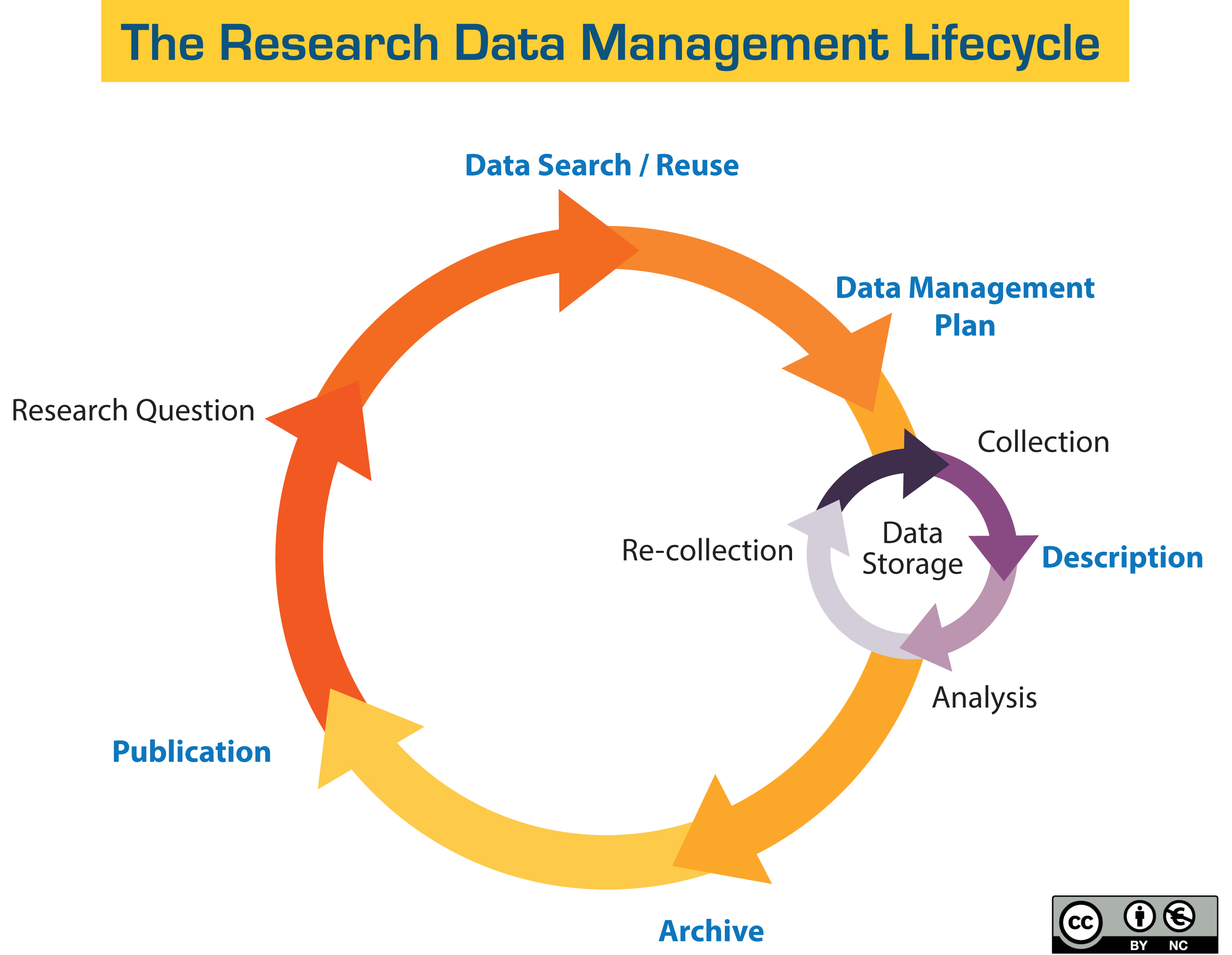0.3 How to use the online course
Content
The online course consists of the following ten thematic sections:
- Introduction
- About research data
- How to search and cite research data
- Research contracts
- How to structure and document research data
- How to store research data
- Data cleaning, analysis and visualisation
- How to archive research data
- Rights and licenses for research data
- How to write a research data management plan

Figure: "The Research Data Management Lifecycle" by UC Santa Cruz, licensed under CC BY-NC
Each section contains a certain number of sub-sections, which are composed of video lectures, lessons learned, food for thought, test yourself quizzes, and required and recommended readings. We strongly encourage you to spend time on the activities in order to test your understanding of the content and to see the connection with your own work and your own field.
Estimated workload
Module 1 will require approximately 2-3 full working days to watch all videos (and perhaps re-watch some), do the quizzes (and perhaps redo some), and read all the required and most of the recommended literature, and do the exam.
How to work with the video lectures
All videos are subtitled in English, and you can view the subtitles by clicking the "cc" symbol in the video frame. When watching a video, remember that you can pause it and rerun parts that you need to watch again, and go back and forth as you wish.
Terminology explained: Lessons learned, food for thought, readings and references
Each section contains
a certain number of sub-sections, which are composed of video lectures,
lessons learned, food for thought, test yourself quizzes, and ideas for further
reading.
Within the sections you will find the following terms:
Lessons learned = Summary of the most important lessons of each sub-section.
Food for thought = Help to reflect upon the topics discussed in the course's sections. It will give you a better understanding of the topics and help you place the lessons learned in this sub-section in the context of your own research data management. Although not obligatory, we recommend you to spend some time on the Food for thought.
Recommended reading if you want to learn more = Literature that you can use to get an even better understanding of the topics. You can use this as a resource, either when doing the course, or later on.
References = Literature that the course developers have used to develop the course material. You can use this literature if you want to learn more about the topics, either during the course, or later on.
At the end of each section there is a reading list under the heading "Readings". Here you will find two types of reading:
Required reading = Literature that is required to be read as part of the DocEnhance Data Stewardship course. This literature is necessary to get a deeper understanding of the course's content.
Recommended reading = Literature that you can use to get an even better understanding of the topic. This literature is not an obligatory part of the DocEnhance Data Stewardship course. You can use this as a resource, either when taking the course, or later on.
Examination
Section 11 closes the course with a summary and a final examination. The examination contains 30 multiple choice questions relating to the ten topics. If you do the examination and get at least 80% (or 24)
correct answers, you will have earned a pass grade and you will receive a course certificate. You get 4 attempts.
Connection with Modules 2 and 3
The content of our online course constitutes the necessary background for more active learning assignments in Modules 2 and 3 of the DocEnhance Data Stewardship course.
If you want to enrol in these modules, it is a requirement that you have passed the examination in this Module 1.